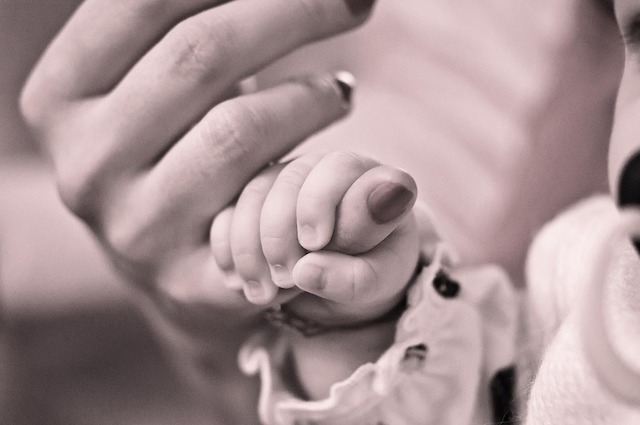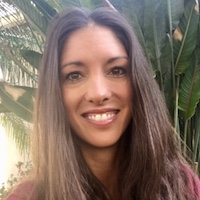
There was a time when I was someone else. She wasn’t a bad person. She loved her two children and her husband and she did her best.
But she was inauthentic—a mere chameleon to the world surrounding her.
She gave herself to the pottery wheel of popular culture, and allowed the busy hands of education, media, religion, politics, and Hollywood to shape her as they would. She hoped to be pliable enough to become beautiful by their artful contortions of her being, to be placed on the showcase shelf and avoid being hidden in the cupboard.
Her thoughts were filled with activities and plans, judgments and hopes and fears. She secretly measured her success by the size and location of her house, the décor within it, the outfits adorning her children, the handbag over her shoulder.
She did all right for a while. There was always that curious, nagging place within, that inner emptiness that needed to be seen, to be allowed to ebb and flow with the real energized feeling of true living, but she could cover up this little annoyance easily enough with the menu of distractions provided by her sculptors.
Life was shallow with temporary pleasures and disappointments, until one February day.
My third child was born. I imagined another blue-eyed, curly-headed blond baby, toddling around with his blond-haired, blue-eyed siblings, perfect and healthy and adorable. Three little ducks all in a row. I never gave it a second thought.
When my son was born, the delivery room suddenly became eerily quiet. The two nurses, whom had been my friends and supporters moments before, would not make eye contact with me. Neither would the doctor. The baby was unexpectedly and abruptly taken away.
A few minutes later he was returned, accompanied by a teary-eyed female pediatrician, who informed my husband and me that our baby most likely had Down Syndrome. She choked back tears, told us that on days like this she felt the urge to run home and hug her own children, then excused herself before she burst out sobbing.
Had I not been physically connected to multiple pieces of medical equipment, I would have promptly stood up and given her a nice swift punch to the stomach. Instead, my mouth opened, without the guidance at all of my brain, and I repeated with almost slurred speech, “That’s okay. Well, that’s okay.” To be sure, I did not feel that it was okay, but my mouth, operating of its own accord, knew better.
Next came this avalanche of shame. I had messed up. Now I had to tell my own parents that I had broken their grandbaby. I called my mother, and blurted out the words that had been relayed to me. “Well, that’s okay!” she said. The same words as my own. Yet hers were from mother to daughter and were delivered lightly, yet with strength behind them, a certain matter-of-factness that had no room for anything but love for the new human joining our family. A mere shrug of the shoulders accompanied by a congratulatory hug, all wrapped into three words.
After much examination, I was finally allowed to keep my son with me. I held him close. The laboratory testing to confirm the diagnosis of Down Syndrome would take five days. But I did not need that test; I was looking at his face. My husband, unshakably strong and loving as always, cradled the baby with me, until the time came for him to go home for the night and be with our other children.
Now we were alone, mother and child. I looked into his eyes, and we had our first conversation. “I know I’m not what you expected. But you’re gonna love me. And I love you. I already think you are amazing.” First words to his momma, relayed by his wide little eyes. But she had no words for him. And as I look back, none were really needed.
With one fell swoop, this tiny differently-abled baby picked up the polished piece of pottery that was his mother, and lovingly dropped her, smashing her into a thousand pieces. I felt this as a physical sensation. A nurse entered my room, and asked me how I was doing. I told her the truth, that I felt broken. She nodded, left the room, and swiftly returned with a tiny pill and paper cup of water. “Take this. You’ll feel better.” To this day, I have no idea what pill she provided.
I stared at it for a long time. The pain was almost unbearable; my head was swimming in this new bizarre reality of life. All my dreams and hopes for my life, every single one, was collapsing into some raging inner earthquake, swallowed up, gone forever. And yet there was something about this pain that felt good, like the pain of a wound that is healing.
I needed the pain. I needed it to break me. If I numbed the pain, I would warp the process. I would interrupt the beautiful, awful, chaotic destruction of Andrea. And here was this baby, in my robotic arms, just staring up at me patiently, as if he knew this was par for the course, and he didn’t mind waiting for me to come around. I did not take the pill. The destruction continued, unhindered.
Nothing was ever going to look perfect again. There was no shell, no shiny veneer to cover this baby’s beautiful face and make it look normal. The woman who depended on the thick layer of potter’s clay to protect her, to hide her nakedness, could not survive here. She was tool-less, flimsy, and paralyzed without her shell. She was being destroyed.
She died that night in her hospital bed. She died with that baby’s skin on her bare chest. She emptied herself of everything: her ideas, her plans, her rules, her personality, her priorities, her knowledge, her likes, her dislikes. Empty. Flat lined. One last dying breath, one huge exhalation, and everything was gone.
And then, he filled her back up. Heart beating on heart, this little broken baby became the breath of God, and breathed new life into the body of his mother.
Through this act of breaking, I became un-broken. He shattered me to wholeness. When everything external and unnecessary was swept away, I was left with the only thing that can never be taken: my own internal compass—my truth, my power, my divinity. I chose to allow it to guide me, to disregard external authority and embrace inner authority—and I changed.
There have been so many times when I had the deepest desire for change, for something new and different, but I disregarded that feeling because it did not match up with my current lifestyle, current personality, or past personal history.
If I want to change, then I must allow the destruction of that part of me that does not want the change, that is afraid to change.
Goodbye current lifestyle. Adios personality. Farewell past.
And here is the kicker: None of those things ever held me—I held them. I was always the strength, the hands that hold. I may drop these things whenever I wish.
These great cities we build upon ourselves, the sparkling towers of reputation, rules, rank, and identity, I say let them crumble.
These things are so heavy and require so much energy to maintain. Goodbye identity, I do not need you in order to live. Actually, living is a hell of a lot easier without you. I need no external rules to behave honorably. I need no reputation to be worthy. I need no rank to be seen.
I am a wanderer now, naked in my skin, with the sun shining down on me and guiding my compass, the sweet breeze supporting my back.
I am no longer afraid of destruction, although I still do not enjoy it. I have, since that night six-and-a-half years ago, undergone several more inner destructions, all of which have been painful, depressing, and have sometimes left me in temporary states of hopelessness.
There is however, an ebb and flow, and in the deserted empty aftermath of the inner tempest, there is space for new growth. What shall I grow?
My canvas is blank again. What shall I paint?
The path is gone again. Where shall I wander?
What new territory shall I explore? What maps shall I craft?
And the adventure of living continues.
~
Author: Andrea Hartman
Image: Pixabay
Editor: Travis May











Read 0 comments and reply